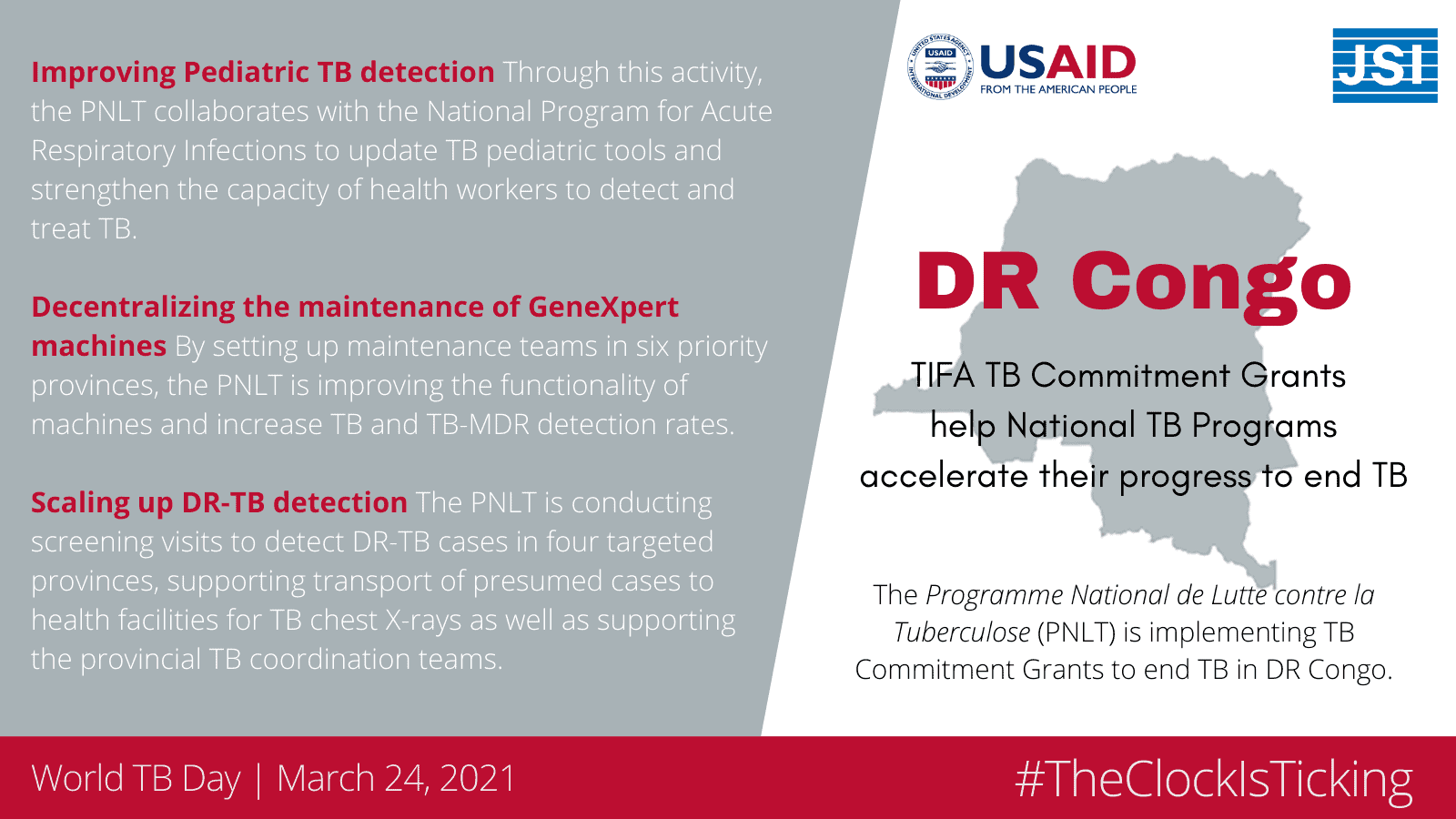Commitment to End TB in DR Congo
March 19th, 2021 | viewpoint
Despite being preventable and curable, tuberculosis (TB) continues to be the world’s deadliest infectious disease. Each year 10 million people become ill and 1.4 million people die of TB.
The Democratic Republic of the Congo is among the countries most affected by TB in the world. According to World Health Organization (WHO) estimates, 278,000 people in DR Congo fell ill with TB in 2019. Of these, only 179,000 were notified, leaving 99,000 people undetected by the national health system—who could potentially pass TB to others in their household and communities. WHO estimates that approximately 52,000 people died from TB in DRC in 2019.
As part of the Global Accelerator to End TB, the United States Agency for International Development (USAID)-funded TB Implementation Framework Agreement (TIFA) project co-designs TB commitment grants (TCGs), with national TB programs (NTPs). TB commitment grants are fixed-amount awards designed to align with national TB strategic plans. Under TCGs, accountability and funding amounts are based on results—negotiated milestones are tied to payments. Together, national TB programs and USAID identify country priorities, TIFA then works closely with them to develop the grant. In DR Congo, the Programme National de Lutte contre la Tuberculose (PNLT) worked closely with TIFA to co-design and initiate three TB Commitment Grants.

Through a TB commitment grant, the PNLT is improving pediatric TB detection; through this intervention, the PNLT is collaborating with the Programme National: Infections respiratoires aiguës (National Program for Acute Respiratory Infections – PNIRA) to update TB pediatric tools and strengthen the capacity of health workers to detect and treat TB in DR Congo.
Limited regular GeneXpert maintenance contributes to delays in the diagnosis of multidrug-resistant (MDR)-TB. Using the TCG to create teams in six priority provinces, the PNLT is decentralizing GeneXpert maintenance to improve their functionality and increase TB and MDR-TB detection rates.
The PNLT is also using a TB commitment grant to scale-up drug-resistant (DR)-TB detection in Kasaï Oriental, Lualaba, Haut Katanga, and Kinshasa provinces. The PNLT is conducting screening visits to detect DR-TB cases, providing transport of presumed cases in health facilities for chest x-rays, as well as supporting the provincial TB coordination teams.
These three TB commitment grants are helping the PNLT race against time by funding their National Strategic Plan priorities for DR Congo. Even as we battle COVID-19, we must not give up on the fight against TB. The clock is ticking — it’s time to end TB.
We strive to build lasting relationships to produce better health outcomes for all.